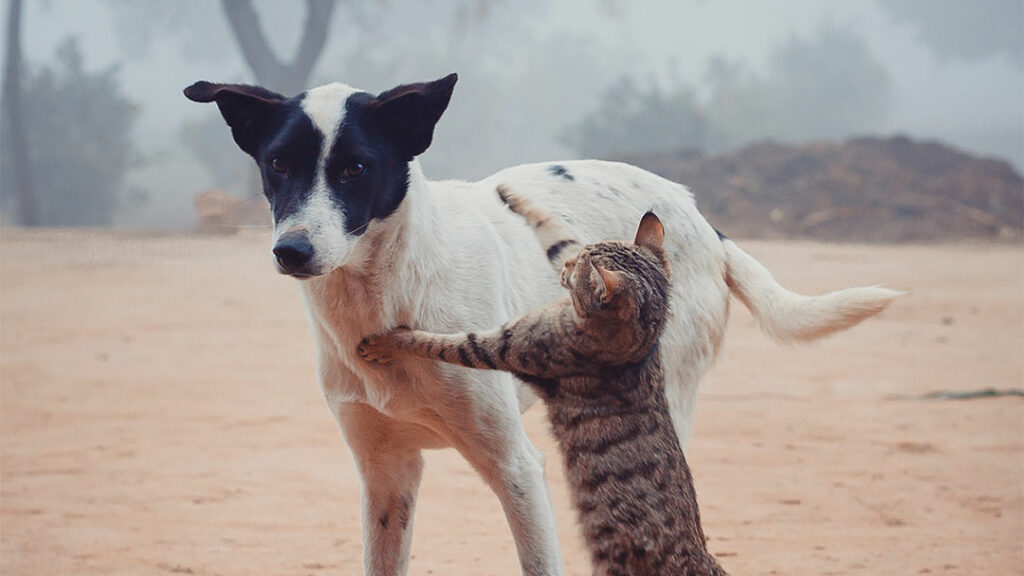The perfect breed of house cat can make your home warm, loving and tranquil. Though cats are famously independent, low-maintenance housemates, not all felines are equally cut out for life indoors. Some breeds are especially well suited to home life because of their temperament, energy needs, grooming requirements, and socialisation. Whether it’s your first time owning a cat or you’ve been a pet parent to multiple felines for years, getting to know the different types of house cats can help you find the perfect pet to accommodate your lifestyle and home.
House cats, of course, come in many varieties, and each has its own personality and care profile. Other cats are active and playful and are always looking for attention. Others are more retiring, sulking off on their own, curled in front of a window. Some breeds are gregarious and loving of people, and those that are more self-reliant and handle less well. Variety of Cat Breeds There is a perfect house cat for every living situation and lifestyle because of the variety of cat breeds.
The Elegant Persian Cat
Few cats are cuter or more popular than the Persian as a house cat. The Persian cat is the epitome of a purebred feline. Persian cats are gentle, sweet cats with expressive, soulful eyes, which add to their looks of world-weary wisdom and sweet expressions. They do best in a tranquil environment, and they are highly attached to the people they love. Persians have long, thick fur, so they need to be groomed regularly to avoid matting. In exchange, they provide silent companionship and a decorous presence in the home. They are calm and well-suited for an apartment or quiet, small dwelling, even if left alone during the day.
The Social Ragdoll Cat
Ragdolls are the first cat most people think of be a “house cat” due to their affectionate, sweet personality. These strikingly beautiful cats are sizable in size and are known to “wilt” when you pick them up, which is what inspired their name. Ragdolls are super social and so devoted to their families! They tend to shadow their humans from room to room and like to be included in daily activities. They have a semi-long soft coat that is easy to manage through brushing. Due to their docility, Ragdoll cats should be kept indoors to ensure their safety from outdoor threats. Their Personality is great for families, couples and even singles who desire a good, loyal cat friend.
The Active Bengal Cat
If you love cats that look wild then you’re going to love these Bengal cat facts about this gorgeous, exotic-looking breed that is full of personality. Bengals are the look of a leopard in the body of a domestic cat with a beautiful spotted coat, and they are extremely smart and active. They need a stimulating indoor area with a variety of toys, platforms, and interactive play. Both friendly and affectionate, Bengals form strong relationships with their human owners, and although they love to be around their people, Bengals don’t necessarily fit well into quiet, low-energy families. They are a curious breed who enjoy exploring and can even be leash-trained.collectionView. And a Bengal cat translates colour and playfulness into any home, up for high-energy cat demands.
The Loyal Maine Coon
The Maine Coon is one of the biggest domestic breeds and is prized for its friendly, dog-like nature and shaggy, water-repellent coat. Comparatively, Maine Coons are among the gentle giants which blend well with children and other animals. They are sociable, intelligent, and inquisitive and can develop a clear routine within the home. Their playful yet relaxed attitude makes them a great fit for active families and more relaxed households. Maine Coons do not require frequent grooming as they already possess a thick coat, but due to their behavior being low-maintenance, they are often praised for being a great house pet. They do well in an indoor living situation and are best known for their chirping sounds and their loving dispositions.
The Curious Scottish Fold
The breed is probably best known for its distinctive ears, which fold forward and contribute to an owl-like look. this breed is a loving, gentle breed that is very attached to their human family. Scottish Fold cats can either relax or play in brief spurts. Relaxed and easygoing, they are well-suited to apartment life or a quiet home. They are not clingy dogs, but do like to be around their owners. Scottish Folds are short to medium haired cats and ask for regular grooming to keep their coat healthy.
The Talkative Siamese
Go To The Siamese Cat Breed Profile. If you want a house cat who loves to chat, the Siamese may be perfect for you. Siamese cats are well known to be vocal, intelligent, and people-oriented. They are very loyal to their owners and do not like to be away from them for too long. Siamese cats are social and like being around people (like humans, but not really) and may be entertaining and active. The easy-to-groom short coat can come in gorgeous pointed colours, and they have stunning blue eyes, which are among the most striking of any breed. Because they crave interaction, Siamese cats thrive in households where someone is home at least part of the day.
The Easygoing British Shorthair
British Shorthair cats have thick, plush coats and sturdy, rounded bodies. This breed is an ancient and very chill variety of the household cat. British Shorthairs are independent, but not aloof. They are affectionate on their own terms and very quiet, undemanding dogs. They are more watchers than doers in frenzied situations so they are a perfect companion for more peaceful homes or people who like a laid-back pet. They have only modest grooming requirements and make themselves comfortably at home indoors, provided they receive appropriate enrichment.
Choosing the Right House Cat for Your Home
Thinking about what make or model of house cat to bring home also means thinking beyond appearances. Though coat colour and eye shape may send you running to the cat of your dreams, it’s the cat’s temperament, energy level, and how well it fits into your lifestyle that should guide your selection and whether you and the cat end up happy together. If you’re a couch potato, a high-energy breed such as a Bengal can be a poor match, just as a mellow Persian may not be the best fit for a busy household full of active children and other pets.
The size of your home is also a factor in selecting the best cat. Although most dogs can acclimate to apartment living if their needs are provided for, high-energy breeds require more stimulation and room to roam. The less active breeds, however, are perfectly happy with a soft bed and a little play time here and there. Think about how much time you can spend grooming, playing and interacting with your cat. Some breeds need more hands-on care than others, while some are more of the independent type.
And there are health considerations to take into account, too. Some breeds are more susceptible to genetic issues, and to be responsible should receive special care or frequent vet visits. Selecting a responsible breeder/good facility or adopting from a rescue with health testing in place can go a long way toward a healthy pet. Regardless of the breed, every cat will respond well to the standard package of regular vet care, a healthy diet and a loving environment.
Final Thoughts
With almost unlimited choices, how to find the right type of house cat is an exciting and worthwhile journey. Each breed has its special quality, from the serene grace of the Persian to the spirited playfulness of the Bengal. The best house cat for you will fit your lifestyle, personality and desires, and a friendship will develop as a result of trust and companionship that will last a lifetime.
Whether you want a cuddlebug, like having a silent observer or are after a playful partner, there is a house cat breed waiting to be welcomed into your home. By knowing all the differences between the types of cats, you can make a decision that will ensure years of happiness, love, and memories of an adorable little kitty in your home.



